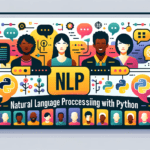Mobile applications have become integral to our daily lives. From social media platforms to productivity tools and gaming apps, there’s a mobile app for almost everything. However, behind every successful mobile app lies a carefully crafted codebase written in a programming language that suits the app’s requirements and goals.
Choosing the right programming language for mobile app development is a crucial decision that directly impacts the success of your app. With a multitude of programming languages and frameworks available, this guide will help you navigate through the options and make an informed choice. We’ll explore the best programming languages and frameworks, considering factors such as platform compatibility, development speed, performance, and developer experience.
Native App Development
iOS Programming Languages:
For iOS app development, two primary languages dominate the scene:
- Objective-C:
-
- Objective-C is the first programming language for iOS development and has a long history. It’s an object-oriented language with syntax derived from C and Smalltalk.
- While effective, Objective-C can feel clunky to some developers due to its syntax and protracted nature.
- Swift:
- Swift, introduced by Apple in 2014, quickly gained popularity among iOS developers. It offers modern syntax, improved safety features, and better performance than Objective-C.
Swift, introduced by Apple in 2014, has quickly become the preferred choice for building iOS apps. It offers a modern syntax, improved safety features, and better performance than Objective-C, making it a robust and efficient option for your iOS app development needs.
Android Programming Languages:
When it comes to Android app development, developers have two main languages to choose from:
- Java:
-
- Java has been the default language for Android development since its inception in 2008. It’s an object-oriented language known for its portability and extensive ecosystem of libraries and tools.
- Despite its popularity, Java can be verbose and prone to boilerplate code.
- Kotlin:
- Google endorsed Kotlin in 2017. It offers modern features, conciseness, and seamless interoperability with Java. It’s gaining traction among Android developers for its enhanced developer experience.
- Kotlin’s concise syntax and reduced boilerplate code make it a compelling choice for Android app development.
Hybrid App Development
Hybrid app development allows developers to write code once and deploy it across multiple platforms. Here are some popular frameworks for hybrid app development:
- React Native:
-
- Developed by Facebook, React Native enables building native-like mobile apps using JavaScript and React. It allows developers to leverage a single codebase for iOS and Android platforms.
- React Native’s component-based architecture and hot reloading feature streamline the development process.
- Xamarin:
- Acquired by Microsoft, Xamarin allows developers to build cross-platform mobile apps using C#. It provides access to native APIs and platform-specific functionalities while sharing a common codebase.
- Xamarin’s integration with Visual Studio and extensive libraries make it a robust choice for .NET developers.
- Flutter:
- Introduced by Google, Flutter is an open-source UI toolkit for building natively compiled mobile, web, and desktop applications from a single codebase.
- Flutter’s reactive framework, rich set of widgets, and hot reload feature enhance developer productivity and app performance.
Progressive Web Apps (PWAs)
For developers looking to create web-like experiences on mobile devices, Progressive Web Apps (PWAs) offer a compelling solution. Here are some languages commonly used for PWA development:
- JavaScript (JS):
-
- JavaScript is the backbone of web development and is the primary language for building PWAs. It enables developers to create interactive and dynamic user interfaces.
- HTML/CSS:
- HTML and CSS complement JavaScript in PWA development by defining the structure and styling of web pages. They provide a flexible and expressive way to design visually appealing user interfaces.
Choosing the Right Programming Language
Selecting the best programming language for mobile app development depends on various factors such as project requirements, target audience, development team’s expertise, and time-to-market. Here are some considerations to keep in mind:
- Platform Compatibility: Choose a language that supports your target platforms (iOS, Android, or both).
- Developer Experience: Consider your development team’s familiarity and comfort level with the chosen language.
- Performance: Evaluate the performance characteristics of the language and its impact on app responsiveness and efficiency.
- Community Support: Look for languages with active communities, extensive documentation, and a robust ecosystem of libraries and tools.
In conclusion, there is no one-size-fits-all solution for selecting the best programming language for mobile app development. Each language has strengths and weaknesses, and the optimal choice depends on your specific project requirements and constraints. Whether you opt for native development with Swift or Kotlin, hybrid development with React Native or Xamarin, or web development with JavaScript for PWAs, the key is to leverage the language that aligns best with your goals and objectives. Happy coding!




